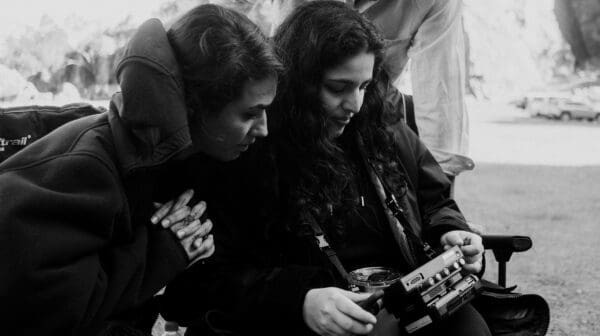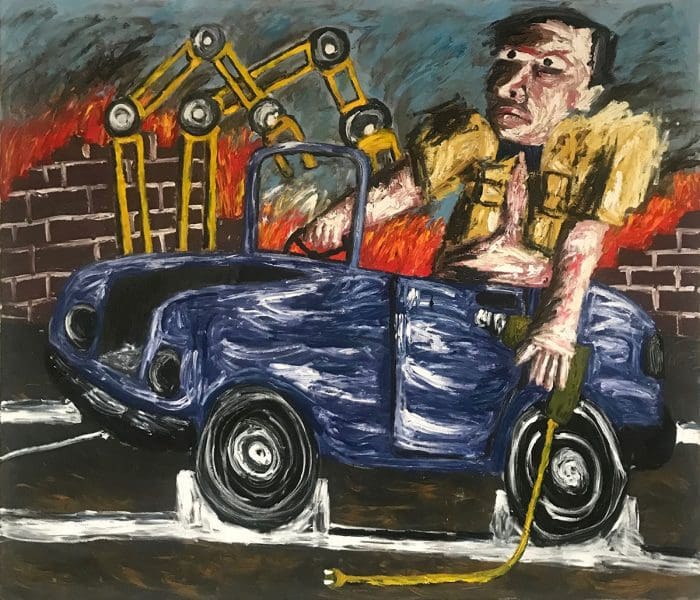
Finding New Spaces Together
‘Vádye Eshgh (The Valley of Love)’ is a collaboration between Second Generation Collective and Abdul-Rahman Abdullah weaving through themes of beauty, diversity and the rebuilding of identity.
Praxis Artspace is a dark grey brick building in Bowden, an inner western suburb of Adelaide. Despite the recent flurry of apartment constructions and warehouse conversions there remains a gritty, beside-the-railway aesthetic. This is an appropriate setting for the exhibition Suburban Castaway by Tom Phillips, a vast number of paintings and drawings that insistently pit man against the city, the machine, and an ever present black dog.
The works confront you in the foyer of the gallery; large, gestural paintings of a central figure, a fleshy man whose red mouth full of teeth is mirrored by the red toothy snarl of the black dog. The gallery proper, a renovated warehouse with vast tracts of white wall, is large enough to contain the repetitive motifs without them becoming overwhelming. Instead, the effect of seeing so many of the artist’s aggressive, expressive paintings in one place (works that on their own may evoke futility and despair) is a feeling of underlying resilience and even perhaps a sense of hope.
He is marooned alone in a desolate field, but for the ubiquitous black dog that jumps at his shoulder, teeth bared. It is a picture of intense loneliness. And yet, given the bleak framing of the city and its machinations in other works, maybe this man is in a better place, more a runaway than a castaway?
The dog too cannot be understood in simplistic terms, as well knew the melancholic who first saw his affliction as his companion, constant and loyal, breathing hotly down his neck in the night. The man Phillips paints and draws is haunted by the black dog: his shadow, his alibi. In, Untitled, 2016, this man, like Durer’s persecuted angel, is paralysed as the dog lunges at the window. In Between the Clock and the Bed 8, 2016, fear holds him suspended in timeless space; the dog takes the shape of the man’s anxiety in the room. But with the recurrence of the image of the dog its negative power is lessened. Sometimes I almost think it’s grinning.
The journey that unfolds around the gallery walls continues through the travails man makes for himself. (Phillips only presents one woman, looming out of the landscape like a Drysdale woman, clutching her handbag.) Men struggle ineffectually with urban technology, machines, vehicles, power tools and computers. In the darkly humorous, Endangered Species 2, 2017, a man sits in a car with no engine, threatened by the waving arms of a crane. As the city burns behind him his only defence is a power drill, but the cord trails impotently on the ground.

The castaway in Suburban Castaway is a figure who seeks a probably impossible escape: from the outer suburbs, from his inner turmoil. The urgency of the marks Phillips makes, and the persistence of his motifs, make the struggle of this everyman heroic.
Suburban Castaway
Tom Phillips
Praxis Artspace
25 January – 16 February 2018